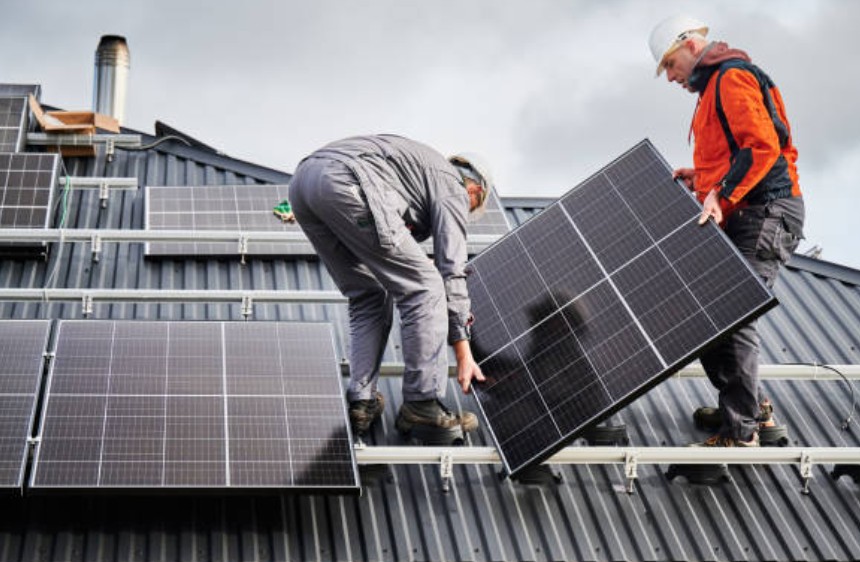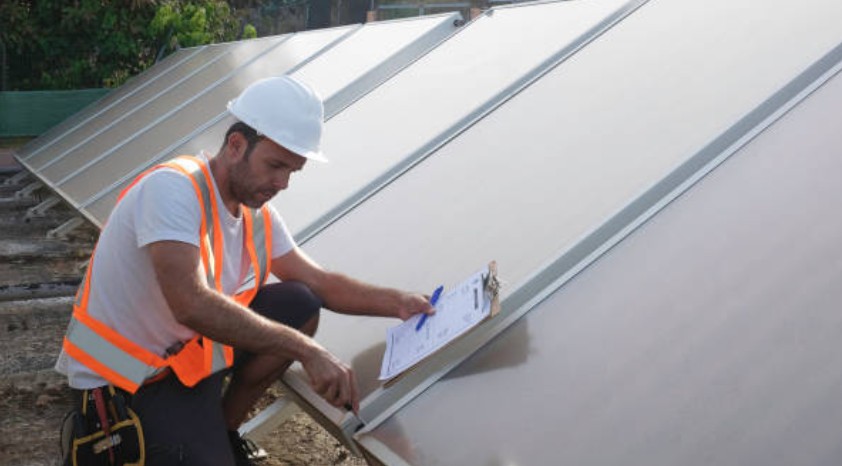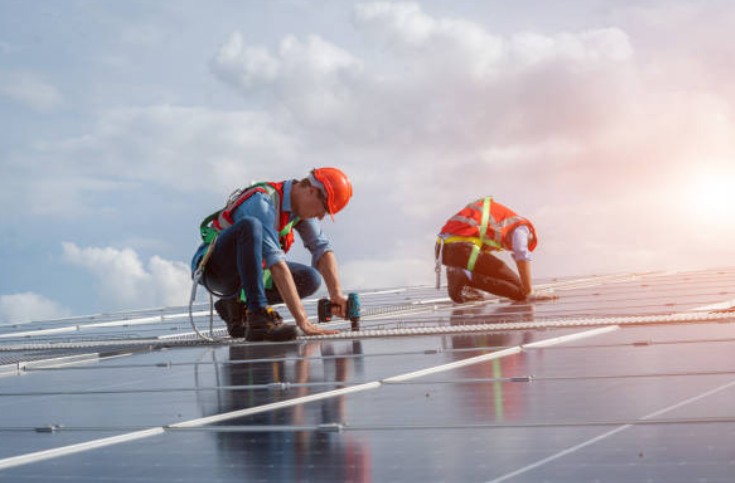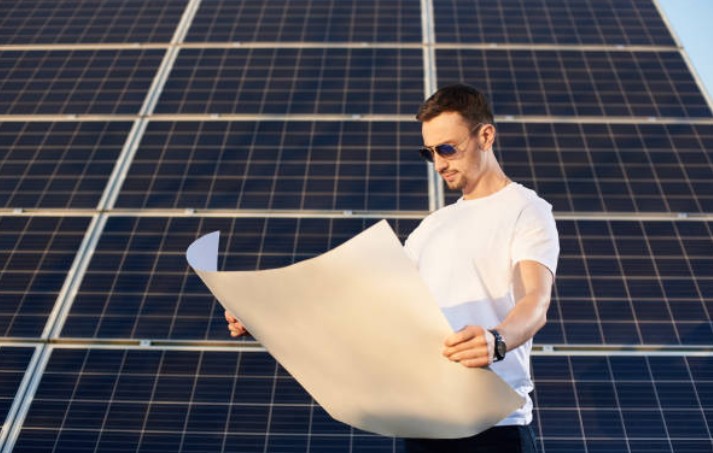As more homeowners and businesses look for ways to reduce their carbon footprint and harness the power of renewable energy, the question Do I Need Planning Permission for Solar Panels? has become an increasingly common query. With the UK government’s commitment to reducing carbon emissions and promoting green energy, solar panels are a popular choice for many. However, before you start the installation process, it’s essential to understand the rules, exceptions, and factors that determine whether or not you need planning permission for your solar panels.
In this guide, we will break down everything you need to know, including common regulations, exceptions, and frequently asked questions, helping you make informed decisions when it comes to installing solar panels on your property.
What Are the General UK Rules for Solar Panel Installation?

The UK government encourages renewable energy solutions, and solar panels have become one of the most popular choices for homeowners looking to reduce energy costs and lower their environmental impact. For most domestic properties, planning permission is not required to install solar panels. However, certain circumstances can change this.
Key Points:
- Solar panels on roofs: If your solar panels are to be installed on a roof, in most cases, you don’t need planning permission as long as they meet specific criteria.
- Conservation Areas: If your property is in a conservation area, you may need planning permission, even for smaller installations.
- Listed Buildings: If your property is a listed building, you will likely need listed building consent in addition to planning permission.
- Size and Location: If the solar panels are too large or are positioned in a way that negatively impacts the building’s appearance or the surrounding area, planning permission may be required.
Do I Need Planning Permission for Solar Panels?
The Essential Answer You Need
To directly address the question of Do I Need Planning Permission for Solar Panels? The general answer is no, if you are installing solar panels on a typical domestic building and the installation complies with permitted development rules. However, the following exceptions apply:
When Planning Permission is Required:
- Conservation Areas: If your property is in a conservation area, you may need to apply for planning permission to ensure the panels do not affect the local environment’s aesthetic.
- Listed Buildings: Installing solar panels on a listed building requires both listed building consent and planning permission. Special care must be taken to preserve the building’s historical value.
- Excessive Size or Visual Impact: If your solar panels are too large, installed at an odd angle, or interfere with the visual landscape (e.g., facing an important landmark or street), planning permission may be needed.
Why Does Planning Permission Matter for Solar Panels?

Understanding planning permission requirements is vital for anyone considering the installation of solar panels. There are several important reasons to comply with these regulations:
- Legal Compliance: Ensuring your installation meets legal standards prevents costly fines or the need to reverse the installation.
- Increased Property Value: A well-installed solar panel system can increase the value of your property, especially if it is legally compliant and energy-efficient.
- Energy Efficiency: By following proper guidelines, your system will be optimized for maximum performance, reducing energy bills and environmental impact.
- Protection of Aesthetic and Historical Value: Especially in listed buildings and conservation areas, maintaining the architectural integrity of the property while integrating renewable energy systems is important.
How Do Solar Panels on Listed Buildings Affect Planning Permission?
When installing solar panels on a listed building, the process becomes more complex due to the building’s historical significance. Listed buildings are protected under UK law, and modifications can’t be made without careful consideration. As a result, you will need to obtain both listed building consent and planning permission.
Key Considerations:
- Non-Intrusive Installation: The installation must not damage the fabric or character of the building. Typically, you’ll be required to submit a detailed plan showing how the solar panels will be installed without affecting the building’s historical features.
- Visual Impact: The visual impact of the panels should be minimal. Often, panels are installed on roofs or areas that are less visible to avoid altering the building’s appearance.
- Specialist Consultation: You will likely need to work with professionals, including conservation experts and architects, to ensure that the installation complies with all regulations.
What Are the Different Types of Solar Panels and Their Impact on Planning Permission?
There are several types of solar panel systems, and each type has a different level of visual impact and regulatory requirements. Understanding these differences can help you choose the best option for your property while ensuring compliance with planning permission regulations.
| Solar Panel Type | Visual Impact | Planning Permission Impact | Primary Benefit |
| Photovoltaic (PV) Panels | High, visible | Typically exempt from planning permission unless in specific areas | Generates electricity, reducing energy costs |
| Solar Thermal Panels | Low, less noticeable | Usually exempt from planning permission | Provides water heating, ideal for domestic use |
| Building-Integrated (BIPV) | Integrated into the building fabric | Often faces fewer restrictions, ideal for aesthetic purposes | Dual-purpose design, energy generation, and architectural enhancement |
| Off-Grid Solar Systems | Varies, depending on location | May require planning if large or impacting the aesthetic | Suitable for remote areas, providing complete independence from the grid |
Is planning permission required to install solar panels on a flat roof?
Flat roofs are a popular choice for solar panel installations due to their often large and uninterrupted space. In general, solar panels on flat roofs do not require planning permission if the panels comply with general size restrictions and are not excessively visible.
Key Considerations for Flat Roofs:
- Size Limitations: There are specific size restrictions that apply to flat-roof installations to prevent them from becoming overly obtrusive. Exceeding these size limitations may trigger the need for planning permission.
- Location and Height: Panels on flat roofs that are higher than the building’s existing structure may impact the visual appeal of the surrounding area. Always check local guidelines for restrictions on height and positioning.
How Can You Ensure Your Solar Panel Installation Is Compliant?

To make sure your solar panel installation is fully compliant, consider the following steps:
- Check Local Regulations: Before starting the installation process, consult your local authority to confirm whether planning permission is required.
- Hire a Professional Installer: A qualified installer can help guide you through the process, ensuring that your panels are installed efficiently and comply with local planning regulations.
- Apply: If your property is in a conservation area or you are installing large panels, apply for planning permission. Include detailed plans of the installation, showing how it will be done while minimizing visual impact.
Final Thoughts
The question Do I Need Planning Permission for Solar Panels? is one that many homeowners in the UK ask when considering solar energy. While most residential solar panel installations do not require permission, it is essential to check local guidelines, especially if your property is in a conservation area, is a listed building, or has a larger installation planned.
By staying informed about the planning permission process, you can ensure that your solar panel installation is compliant, efficient, and enhances your property’s energy efficiency, all while contributing to a greener environment.
Frequently Asked Questions (FAQs)
Do I Need Planning Permission for Solar Panels on a Detached House?
Generally, solar panels on a detached house don’t require planning permission, provided the installation follows the regulations regarding size, location, and visual impact.
What About Solar Panels on a Listed Building?
To install solar panels on a listed building, you must obtain both planning permission and listed building consent. You’ll need to ensure the panels are installed in a way that doesn’t damage the building’s historical features.
Can Solar Panels Be Installed on Conservation Area Properties?
Solar panels on properties in conservation areas may require planning permission, especially if they impact the visual appeal of the area. Always check with your local authority.






